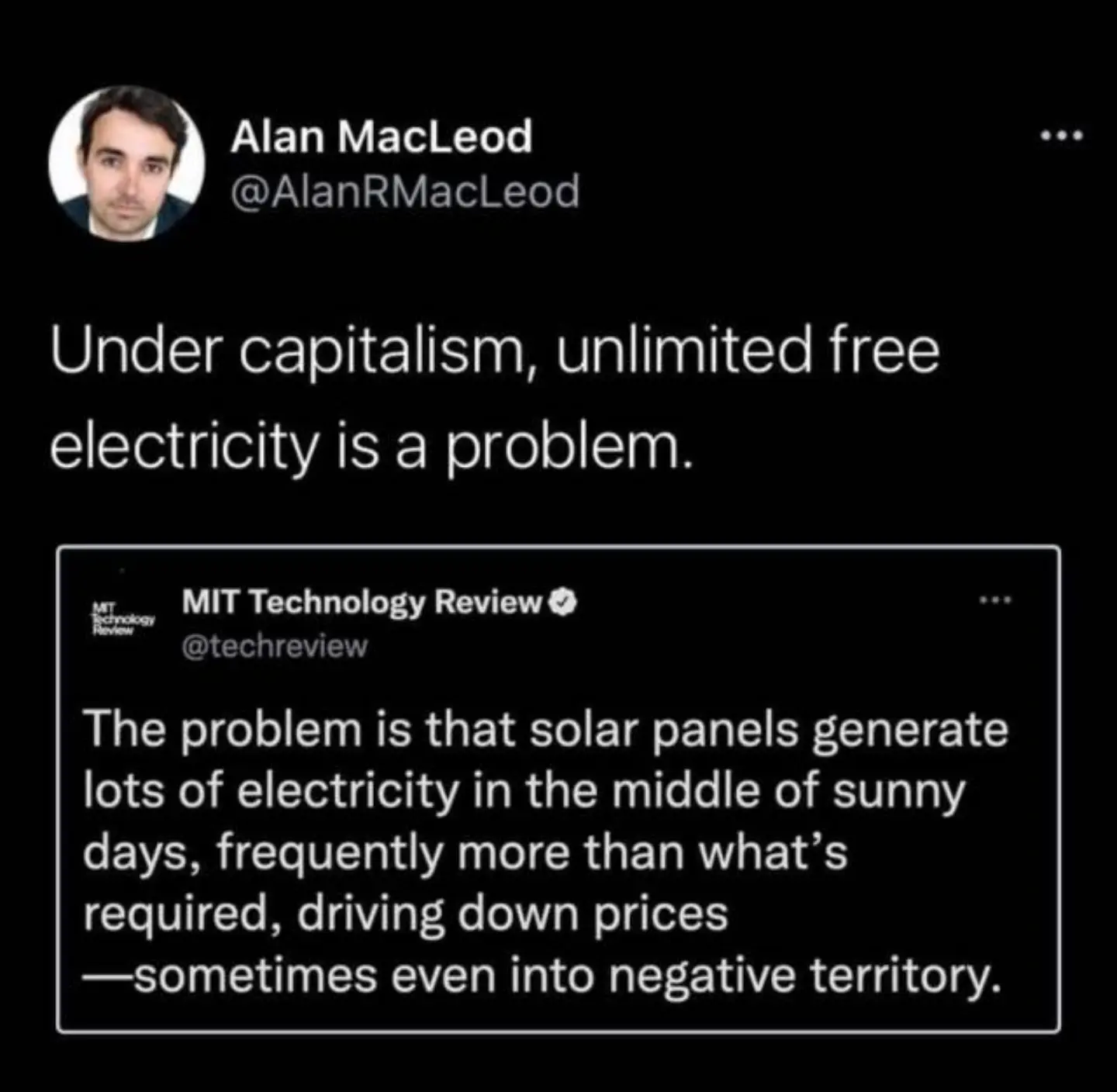this post was submitted on 10 Apr 2024
701 points (94.4% liked)
A Boring Dystopia
14439 readers
35 users here now
Pictures, Videos, Articles showing just how boring it is to live in a dystopic society, or with signs of a dystopic society.
Rules (Subject to Change)
--Be a Decent Human Being
--Posting news articles: include the source name and exact title from article in your post title
--If a picture is just a screenshot of an article, link the article
--If a video's content isn't clear from title, write a short summary so people know what it's about.
--Posts must have something to do with the topic
--Zero tolerance for Racism/Sexism/Ableism/etc.
--No NSFW content
--Abide by the rules of lemmy.world
founded 2 years ago
MODERATORS
you are viewing a single comment's thread
view the rest of the comments
view the rest of the comments

Genuine question out of curiosity, do people think it would be more efficient to have some sort of battery substation for a neighborhood that's funded publicly? I just think it would be really inefficient to have everyone fund their own private batteries. It'll be way easier to balance a neighborhood than each individual house.
You start running into major issues with regulation and ownership of equipment that there isn't a vested interest in solving. If a local battery isn't owned by the utility company, who owns it? How do you track power input and use? Can one house use another house's power?
It is a lot less complicated to keep things separated.
Sorry I should have probably worded it better I meant that it would be run by a public utility not by residents.
Run by a public utility, I don't see any problem.
We own it. It belongs to us. It's mine, and it's yours.
It's public.
And how do you answer the second and third questions?
Things get a lot cleaner when you make the local infrastructure owned by a public utility.
I'm not qualified to answer but I do know there are losses in transmission and ac/dc conversion for that transmission.
I'm by no means an expert just trying to think things through logically I could absolutely be incorrect in any of my assumptions.
That being said I believe inverters go up in efficiency as their capacity increases, add this the fact that they need to be over provisioned to allow for peak draw times and it makes sense that a substation that averages a neighborhoods demand would be able to cut down on cost by averaging.
The benefit of everyone having their own batteries is resiliency. If I have batteries I have power in an outage whether the downed wire is in my front yard or miles away.
There’s probably also some free market benefit in purchasing decisions - some people will choose to spend for more capacity while others have an incentive to save money/power usage
Redundancy could be achieved by multiple power stations run municipally, moreover buying in bulk gives the city more leverage to negotiate price than individuals.
Also supposing that the cost of the battery was fielded by individuals it's just not feasible for the 65% of Americans living paycheck to paycheck to have an additional $20,000 expense and this is something that needs to happen now not down the road.
If the municipal government is going to foot some of that cost it'd be really inefficient to do so in each individual's home as apposed to a centralized site and project